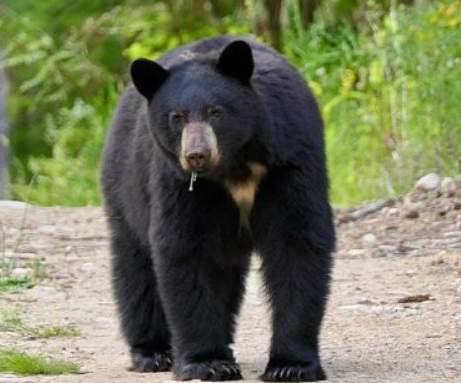
The black bear (Ursus americanus) is the only bear species living in California today. Black bears occur in a diversity of habitats, including natural, rural, and residential areas. Black bears are sometimes mistaken for Brown Bears (commonly refered to as grizzly bears) due to their wide range of fur color ranging from blonde or cinnamon to black. Grizzly bears (Ursus arctos sp.) have been extirpated in the state, with the last documented sighting in 1924.
Black bears provide many ecosystem benefits by serving as seed dispersers, scavengers, and predators. They are omnivores and will consume nearly anything, including seeds, plants, berries, other animals, pet food, human food, and trash.
Black bears may cause concern due to property damage, loss of small livestock or pets, or public safety as they search for food, as they can become habituated to and lose their fear of humans.